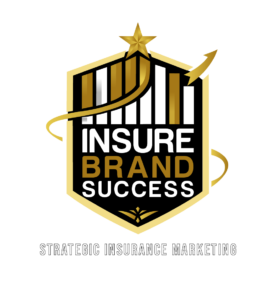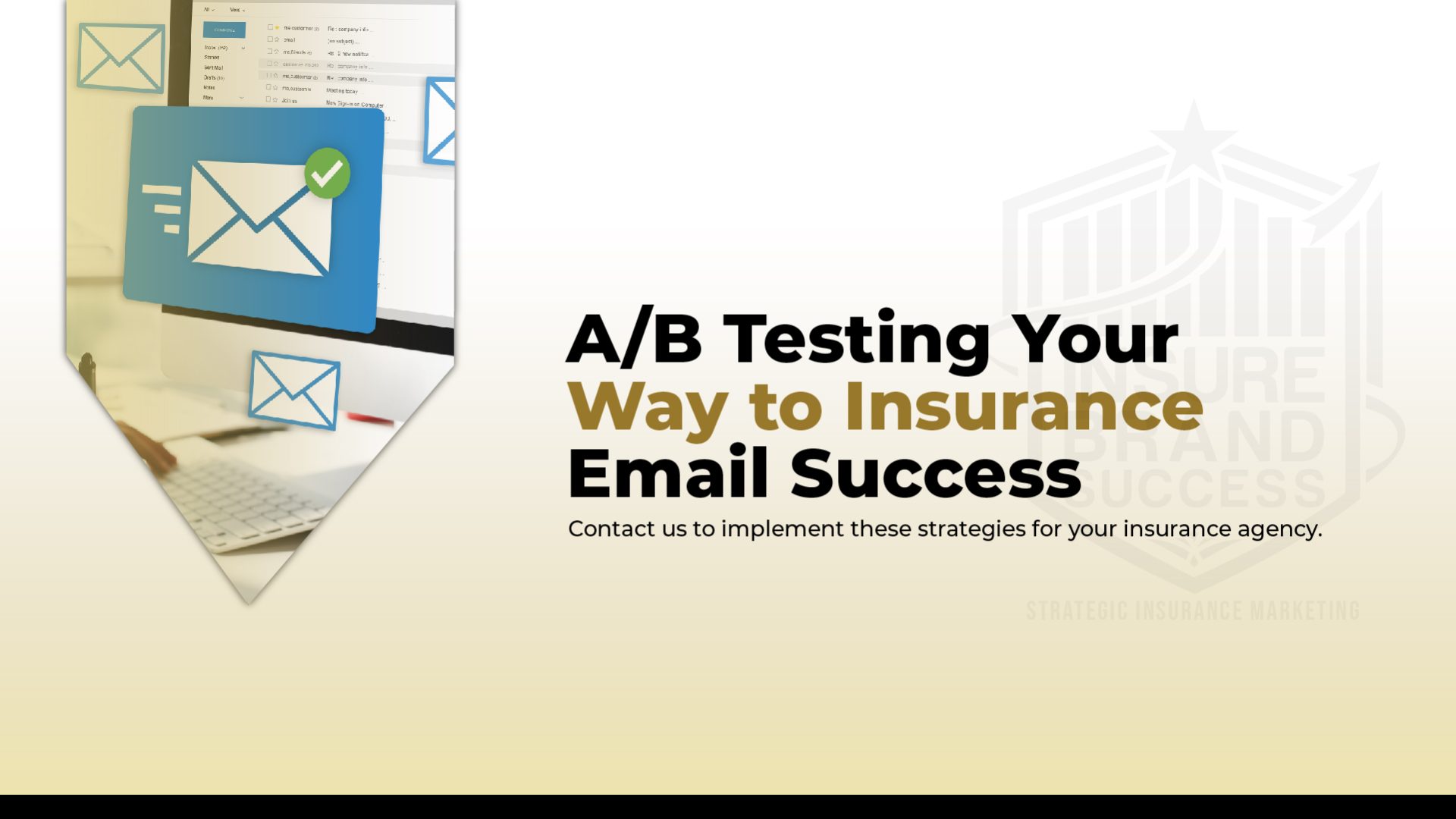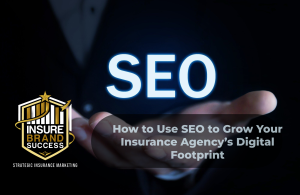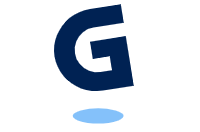Running a successful insurance agency in today’s digital-first world requires a solid online marketing strategy. One powerful way to drive qualified traffic to your agency is through Google AdWords (now Google Ads). However, without a properly optimized campaign, it’s easy to waste your budget on unqualified leads or low-value clicks. To truly get the best return on investment (ROI), it’s crucial to approach your AdWords budget with precision, especially in the competitive insurance sector.
In this blog, we’ll explore how insurance agents and agency owners can optimize their Google AdWords campaigns to achieve maximum ROI. Whether you’re new to AdWords or looking to refine your existing campaigns, these strategies will help you allocate your budget more effectively.
Understand Your Target Audience
Before you even start adjusting your AdWords budget, it’s essential to understand who you’re trying to target. In the insurance industry, not all leads are created equal. For example, a high-value client looking for long-term business insurance policies has more lifetime value than someone seeking short-term auto insurance.
Key Tip: Segment your audience based on factors such as:
- Type of insurance (e.g., auto, health, life, business)
- Geographic location
- Policy duration and client value
By honing in on specific target groups, you can ensure that your ad dollars are being spent on high-quality leads rather than casting a wide net with minimal returns.
Conduct Keyword Research and Prioritize Intent
Insurance keywords are notoriously competitive and expensive. Words like “insurance quotes” and “best insurance rates” are often bid up by large firms, making it tough for smaller agencies to compete. This is where a strategic keyword approach comes in handy.
Instead of bidding on broad, expensive terms, look for long-tail keywords that show a high degree of purchase intent. For example:
- “Affordable business insurance in [your city]”
- “Compare auto insurance plans for families”
- “Best life insurance for seniors”
These long-tail phrases are not only less competitive, but they also align more closely with what potential clients are actually searching for when they’re ready to make a decision.
Pro Tip: Use Google’s Keyword Planner or other tools like SEMrush or Ahrefs to find these long-tail keywords that fit your budget while still driving quality traffic.
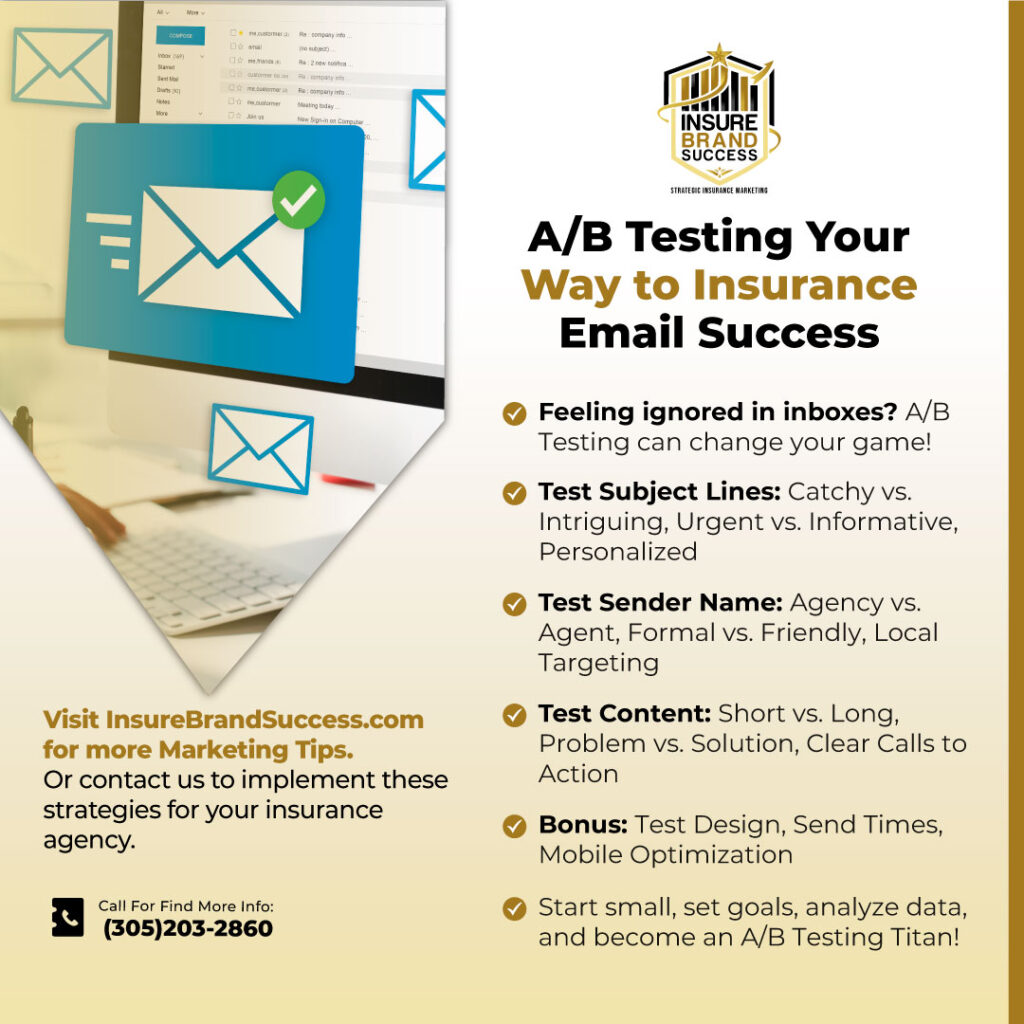
Use Ad Extensions to Increase Click-Through Rates (CTR)
Google AdWords offers a variety of ad extensions that can enhance the visibility and effectiveness of your ads without increasing your cost-per-click (CPC). Ad extensions provide additional information to users, such as your location, phone number, or extra links to your website’s services.
For insurance agencies, the following ad extensions are particularly useful:
- Call extensions: Allow users to call your agency directly from the ad.
- Location extensions: Highlight your physical address for those who prefer working with local agents.
- Sitelink extensions: Direct users to specific landing pages, such as Insurance Email Marketing, so they can quickly find what they’re looking for.
These extensions improve your ad’s real estate on the search results page, making it more likely that users will click on your ad and engage with your services.
Leverage Negative Keywords
Just as important as finding the right keywords is knowing which keywords to avoid. Negative keywords allow you to filter out search terms that are irrelevant to your business or that tend to attract low-quality traffic.
For instance, if your agency specializes in commercial insurance, you might want to add “cheap car insurance” or “home insurance quotes” to your negative keywords list. This ensures that your ads aren’t being displayed to users who are unlikely to convert.
By regularly updating your negative keyword list, you can save money on clicks that won’t result in conversions, thus improving your overall ROI.
Set Up Conversion Tracking
It’s impossible to optimize your AdWords budget without knowing what’s working and what isn’t. That’s why conversion tracking is crucial. Google AdWords allows you to track a variety of actions, such as form submissions, phone calls, and purchases, so you can see exactly which ads are driving valuable leads.
Once you have conversion data, you can adjust your bids, pause underperforming ads, and reallocate your budget to the best-performing campaigns. For insurance agencies, tracking phone calls is particularly important, as many clients prefer to discuss their options with an agent before making a decision.
Utilize Remarketing to Re-Engage Potential Clients
Not every user who clicks on your ad will convert on their first visit to your website. In fact, many will leave without taking any action, which can feel like a waste of ad spend. However, remarketing campaigns allow you to target these users with tailored ads as they browse other websites or social media platforms.
For example, you could run a remarketing campaign targeting users who visited your Insurance Email Marketing landing page but didn’t fill out the contact form. By showing them a follow-up ad with a specific offer or reminder, you can nudge them back towards conversion.
Optimize Your Budget with Bid Adjustments
One of the most powerful features of Google AdWords is the ability to set bid adjustments based on various factors such as:
- Device type (e.g., mobile vs. desktop)
- Time of day (e.g., peak vs. non-peak hours)
- Location (e.g., targeting specific regions)
For instance, if your data shows that most of your conversions happen on mobile devices, you can set a higher bid for mobile traffic. Or, if you know that users in certain geographic areas are more likely to convert, you can allocate more budget to those regions.
By making these small adjustments, you can ensure that your budget is being spent where it will have the most impact.
Test and Refine Your Ad Copy
AdWords isn’t a “set it and forget it” platform. To get the best ROI, it’s essential to continually test different versions of your ad copy to see what resonates with your audience. A/B testing different headlines, descriptions, and calls-to-action (CTAs) can help you identify which messaging drives the most conversions.
For example, if you’re promoting your Insurance Email Marketing service, test variations like:
- “Boost Client Retention with Targeted Email Campaigns”
- “Increase Your Insurance Leads with Our Expert Email Marketing Services”
- “Transform Your Client Outreach with Customized Email Solutions”
Over time, you’ll be able to refine your ad copy to match your audience’s preferences, improving your click-through rate (CTR) and conversion rate.
Internal and External Linking Strategy
As a final note, it’s important to link to both internal resources and authoritative external sources to enhance the credibility of your ads and landing pages. By directing users to high-quality content both on your website and from trusted third-party sites, you’ll provide more value and build trust with potential clients.
Here are three authoritative external links related to the insurance industry:
- National Association of Insurance Commissioners – Comprehensive insurance regulations and updates.
- Insurance Information Institute – Trusted source for insurance research and data.
- U.S. Small Business Administration – Tips for small businesses, including insurance advice.
Conclusion
Optimizing your Google AdWords budget for maximum ROI requires a strategic approach tailored to the unique challenges of the insurance industry. By focusing on high-intent keywords, utilizing ad extensions, setting up conversion tracking, and continuously refining your campaigns, you can ensure that your marketing dollars are being used efficiently and effectively.
Want to take your client engagement to the next level? Learn how Insurance Email Marketing can drive even more conversions for your agency.
FAQs:
- How do I choose the best keywords for my insurance AdWords campaign? The best approach is to target long-tail keywords that reflect the specific needs of your audience. For example, use phrases like “affordable business insurance” or “best life insurance for seniors” to attract qualified leads with high purchase intent.
- What are negative keywords, and why are they important for insurance agencies? Negative keywords prevent your ads from showing up in irrelevant searches, which helps save your budget for more qualified leads. For instance, you might exclude terms like “cheap car insurance” if you only focus on commercial policies.
- How can remarketing help my insurance agency? Remarketing allows you to re-engage users who visited your site but didn’t convert. By targeting them with follow-up ads, you can increase the likelihood of turning them into clients.
- How often should I update my AdWords campaigns? You should regularly review and update your campaigns based on performance data. A/B testing ad copy, adjusting bids, and refining keywords can help you continuously improve your ROI.
5. What is conversion tracking, and why is it crucial for insurance agencies? Conversion tracking helps you measure the success of your ads by showing which actions (like form submissions or phone calls) result from your campaigns. This data is essential for optimizing your budget and improving ROI.
